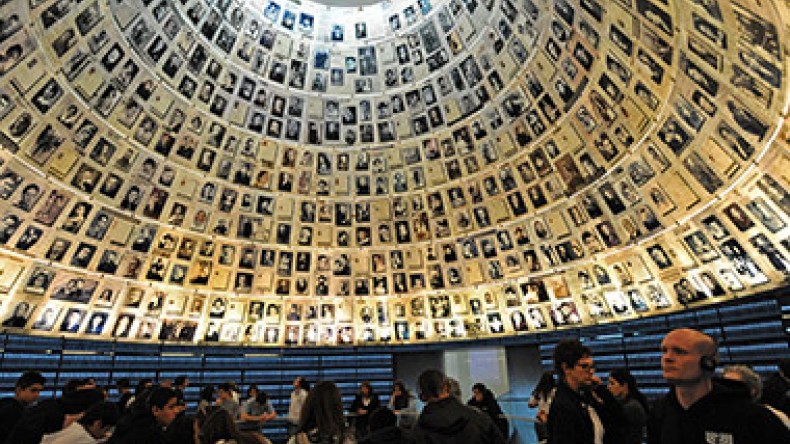
Today marks International Holocaust Remembrance Day
International Holocaust Remembrance Day, 27 January, is an international memorial day for the victims of the Holocaust, the genocide that resulted in the annihilation of 6 million Jews, 2 million Gypsies (Roma and Sinti), 15,000 homosexual people and millions of others by the Nazi regime and its collaborators. It was designated by the United Nations General Assembly resolution 60/7 on 1 November 2005 during the 42nd plenary session. The resolution came after a special session was held earlier that year on 24 January 2005 during which the United Nations General Assembly marked the 60th anniversary of the liberation of the Nazi concentration camps and the end of the Holocaust.
On 27 January 1945, the largest Nazi death camp, Auschwitz-Birkenau, was liberated by Soviet troops.
Prior to the 60/7 resolution, there had been national days of commemoration, such as Germany's Tag des Gedenkens an die Opfer des Nationalsozialismus (The Day of remembrance for the victims of National Socialism), established in a proclamation issued by Federal President Roman Herzog on 3 January 1996; and the Holocaust memorial day observed every 27 January since 2001 in the UK.
United Nations Secretary-General Ban Ki-moon issued the following message for the day.
Every year on the anniversary of the liberation of the Auschwitz concentration camp, we commemorate the victims of the Holocaust. We recall the suffering of millions of innocent people, and highlight the perils of anti-Semitism and hatred of any kind.
This year we focus on journeys through the Holocaust -- and I recall a recent journey of my own.
Last November, I walked through the infamous “arbeit macht frei” gate at Auschwitz-Birkenau. I will never forget my visit.
I saw the horrific remnants of the machinery of genocide, as well as moving images of European Jewish life in the 1930s -- weddings, family meals, rituals, other scenes of simple daily life -- all extinguished through systematic murder unique in human history.
I saw the barracks where Jews, Roma, Sinti, homosexuals, dissidents, prisoners of war and persons with disabilities spent their final days in the most brutal conditions.
The United Nations was founded to prevent any such horror from happening again. Yet tragedies from Cambodia to Rwanda to Srebrenica show that the poison of genocide still flows.
We must be ever vigilant against bigotry, extremist ideologies, communal tensions and discrimination against minorities. And we must teach our children well. The Holocaust and the United Nations Outreach Programme has developed effective educational materials and strong partnerships that help convey these lessons to students around the world.
Standing near the crematorium at Auschwitz, I felt deeply saddened by all that had happened within. But I was also inspired by all those who liberated the death camps for all humanity. Let us join forces today on a shared journey to a world of equality and dignity for all.
Newsfeed
Videos






























